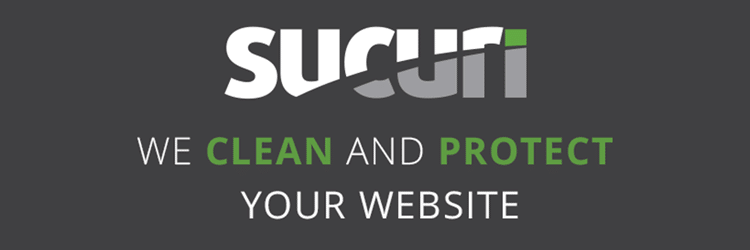Protecting Websites With WordPress Security Plugins
With all the frenzy and obsession that comes with setting up a new website, it’s all too easy to let go off teeny meeny details. Because you’re turbo-charged with the process that your prime focus is to get your store go live and address the problems later. But the website security gives no chance of retreat if not taken seriously.
Security! Not To Be Ignored
If not full-proof, then at least website owners must take the core security measures which could ensure the safety of their data during worst case scenarios. It’s been more than a decade that WordPress is democratizing publishing and today you find more people building independent sites on this open source script than ever before in the history of world wide web. Call it rumors or unrooted speculations, that the critiques consider it an easy target to say WordPress is a not-so-secured CMS; which I find as totally illogical.
This means that 26% of the web is insecure? Yeah right! I’m not a blind follower of the fact that with open source scripts you’re never unlucky enough to be attacked. But it is rightly unjust to blame WordPress for your weaknesses and lackings towards ensuring robust website security.
Website Security Via Plugins
Over the years, default WordPress architecture has been refined and today, it stands on a much secure footing. One can expect that he might never encounter a hacker, but it’s better to keep yourself prepared for the security vulnerabilities.
WordPress’ integration with third-party features is a dream come true with over 40,000 free and several other paid plugins. Think of any extended functionality and the solution is rightly available just a few clicks away. Open the official plugin repository and browse for the keyword security. You’ll probably find more than a thousand results. But the task of choosing the best security plugin remains quite critical.
So now, the following questions arise. Why and how can you rely on some externally developed WordPress plugin to secure your website? What features should be attributed with a security plugin?
Threats Haunting WordPress
Security threats to WordPress don’t come as a big surprise because fame comes with enmity and being a popular CMS it is prone to some serious risks. I’m sure most of us are well familiar with the potential security problems that could ever happen to your WordPress website. Likewise, the solutions to these problems are also known to us. But the scope of this article revolves around fixing all such vulnerabilities by using plugins.
A well-reputed WordPress security plugin is nearly 90% efficient in detecting and fixing common security breaches.
Therefore, you should go for such an option which addresses concerns like:
- Brute force attacks due to weak passwords and repetitive login attempts
- System and Database Vulnerabilities
- Core files protection e.g. wp-admin, wp-config
- Server and FTP loopholes
- Themes and plugins coding weaknesses
- File permissibility
- Outdated WordPress files and versions
The list of points can go on and on, but this will only delay the real scope of the article i.e. evaluating the best plugins available based on threats mentioned above.
The Hard Truth
Despite all the details, the hard truth is you’re never fully secured, and room always exists for some irregularities. A WordPress security plugin provides you a helping hand in ensuring hardcore protection. So, the criteria of your chosen security plugin must depend on the following set of questions:
Is the plugin free or paid? What is its current customer base? Will it make my site secure? What repute it enjoys in the WordPress community? Will it effect other site features? etc.
For beginners, the best parameter to judge the popularity of a security plugin is the number of downloads and active installs. This is a clear indicator to know the number of sites it correctly powers. Likewise, there are certain plugins which effect web page speed, database, etc. And a few names which are good with keeping backups and managing file permissions but not very handy with other features.
So, instead of listing a few popular plugins, let me share the best of the lot. Read on to learn what they are. What features do they offer and how well they fulfill your security needs.
iThemes Security

iThemes Security with more than 700,000 active installs; leads the race and is by far the most intuitive free security plugin of its kind. The plugin provides its users with 30 plus ways to secure their websites. Installing this plugin is just like switching to a host which handles all the security and backups automatically. Once configured the plugin works on its own and you’ll love its experience for sure.
Lately, I listed some potential areas which needed to be secured and iThemes Security provides almost every bit of the features which a website requires. Let’s find out what these features are?
- Prevent Brute Force Attacks: To prevent brute force attacks the plugin’s lockdown feature for failed login attempts ban users, implements 2-factor authentication (2FA) at the login page, allows renaming of login URLs, etc.
- Scanning and File Permissions: To manage file permissions, there exist a file comparison tool which checks any changes of file contents. The security of admin dashboard is maintained via a widget which lets you ban users and conduct system scans automatically.
- Pro Version: The plugin almost includes all the essential features which one desires, but you can also get access to its premium features via subscribing to its annual Pro Version at $80.
Sucuri

If iThemes Security provides the best free solution, then Sucuri offers the best premium model of monitoring your websites and preventing them from being hacked or attacked by some malicious activity. Let’s know more about its features:
- Covers Basic Security Features: It is a well-reputed platform offering firewalls, antivirus, and malware removal services to its customers. Its intelligent detection features keep an eye on everyone who accesses your website.
- Efficient Response: Likewise, a quick response comes right away if your site gets attacked. This way you can take correct measures at the right time.
- Intelligent Scanning and Alerts: Apart from the detection and fixing of malware, Sucuri also offers features like website scanner, real-time alerts, SSL certificate and block DDoS attacks.
Their paid plans are available at a much affordable rate starting from $16.66 per month.
Playing It Safe
Despite all the existing security threats and their solutions, it’s always wise to play safe and protect your website from all possible aspects. Maintaining a regular backup of a WordPress website ensures an early recovery in case of a hacker attack. Several solutions exist in the market, and I’ll help you find the best ones.

BackupBuddy is a fantastic creation by iThemes, backing up more than half a million websites. Together with iThemes Security, the plugin provides a perfect security solution preventing users from hacks, malware, server crash down, etc.
VaultPress is another reasonable choice when it comes to keeping a backup. The plugin offers easy-to-restore automated backups, security scans and instant help from the experts.
The Duplicator plugin is an excellent free backup solution and allows users to migrate, copy or clone a site from one location to another. With a huge customer base of more than 700,000 users, Duplicator is an intuitive plugin which eases down the backup process.
Conclusion
There is no doubt that several relevant solutions do exist, and all are doing great in one way or the other. The two plugins which I’ve mentioned are my personal favorites. I am currently using them to secure my websites. Believe me; it feels great to know that your website is in the safe hands.
So, what is your favorite security plugin? Is your choice the same as mine? I’d love to hear back from you. Comment below or reach out to me at Twitter @MaedahBatool.

(3) Comments
Acee Baba
Awesome, I have gone through bad situation due to Malware attacks on my server during last 3 months. I took a big amount of time to fixing it up. Can you believe it became matter of loss thousands of Dollar due to orders and cancellation. Thanks for speaking on this topic I am sure this will help me to protect my back end :).
Maedah Batool
Thanks Acee for your feedback. Surely, website security has been quite a sensitive topic and should not be overlooked.
Leslie Warren
I would also recommend to install the WordFence security plugin. The tech guys of my web host suggested this plugin to me and I found it very useful. It has many features such as real time monitoring, limit login attempts, caching, etc..